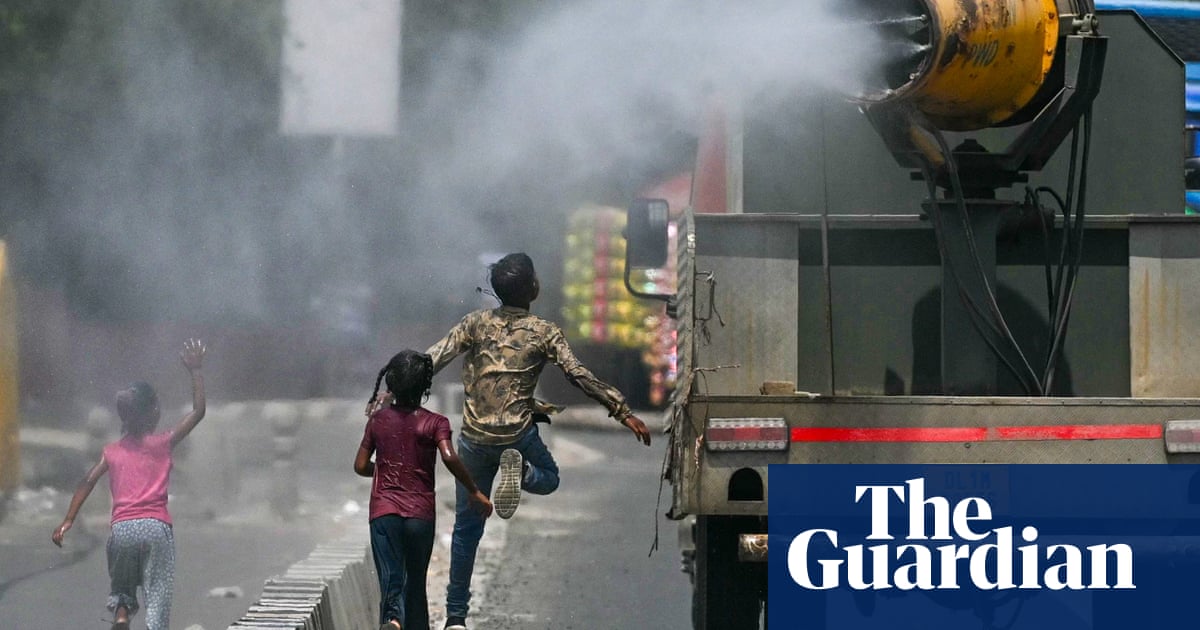Temperatures in Delhi have hit a record high of 50.5C (122.9F), as authorities warned of water shortages in India’s capital.
The India Meteorological Department (IMD), which reported “severe heat-wave conditions”, recorded the temperature in the suburb of Mungeshpur on Wednesday afternoon, breaking the landmark 50C measurement for the first time in the city.
The temperature was more than nine degrees higher than expected, the IMD said, and came on the second day of record-breaking heat. On Tuesday a high of 49.9C had been hit in Mungeshpur and Narela, breaking the 2002 record of 49.2C.
The IMD warned of the heat’s impact on health, especially for children, elderly people and those with chronic diseases. The alert warns there is a “very high likelihood of developing heat illness and heat stroke in all ages”, with “extreme care needed for vulnerable people”.
India is no stranger to searing summer temperatures. Years of scientific research have found the climate crisis is causing heatwaves to become longer, more frequent and more intense.
City authorities warned of the risk of water shortages as the capital swelters. The water minister, Atishi Marlena, called for “collective responsibility” in stopping wasteful water use, the Times of India newspaper reported on Wednesday.
“To address the problem of water scarcity, we have taken a slew of measures such as reducing water supply from twice a day to once a day in many areas,” Atishi said, the Indian Express reported.
“The water thus saved will be rationed and supplied to the water-deficient areas where supply lasts only 15 to 20 minutes a day,” she added.
The heatwave has been building up inexorably for weeks, but even so residents were shocked by conditions on Tuesday and Wednesday. People told of fingers being scorched from touching the steering wheel of a car, and tap water was coming out at boiling temperatures.
“Having a shower is almost a waste of time,” said Aruna Verma, a chemistry teacher. “You come out of it and instantly you are a sweaty mess again.”
Newspapers have published lists of does and don’ts based on doctors’ advice. People have been urged to stay indoors and wear light, loose cotton clothes – advice that is impossible for much of the city’s workforce to follow, including labourers and market stall sellers.
Construction workers have mostly stopped working between noon and 4pm. “The metal rods I’m working with are too hot to touch. Even if I restart work at 5pm, the rods are burning and the heat from the sparks makes it worse,” said Babu Ram, a welder working on a block of flats in New Friends Colony, south of the city centre.
Sameer Prakash, a vegetable vendor, typically stands outside next to his cart until about 2pm, waiting for customers to emerge from their air-conditioned homes.
He alternates between splashing water on the vegetables – to stop them wilting – and on his head, to avoid heatstroke.
“What’s the choice? No one is going to feed my children unless I take some money home are they? Work is work. It just has to be done,” he said. “The sun just kills the vegetables so I buy less than usual from the wholesale market because if I don’t sell them, they will rot.”
It has been gruelling too for politicians addressing rallies in the blistering heat as part of the ongoing general election, and their audiences. Political parties have urged those coming out to bring wet towels, extra water to wet the towels again once they dry, and packets of oral rehydration salts.
Many blame the soaring temperatures on scorching winds from Rajasthan state, where temperatures on Tuesday also reached 50.5C.
At the SMS hospital in Rajasthan’s capital, Jaipur, so many bodies of casualties of the heat have arrived at the mortuary that its capacity has been exceeded. Police in the city say many of the victims are poor labourers, who have no choice but to work outside, and homeless people.
Rajasthan’s desert region of Phalodi holds the country’s all-time heat record, hitting 51C in 2016.
Indians who can afford to escape the baking cities have fled to cooler places in the mountains. But even alpine-like Kashmir, known as the “Switzerland of the east”, has witnessed an unprecedented heatwave.
At the same time, West Bengal and the north-eastern state of Mizoram have been struck by gales and lashing rains from Cyclone Remal, which hit India and Bangladesh on Sunday, killing more than 38 people.
The Bangladesh Meteorological Department said the cyclone was “one of longest in the country’s history” and blamed climate change for the shift.

